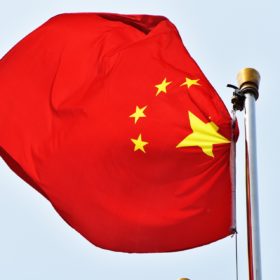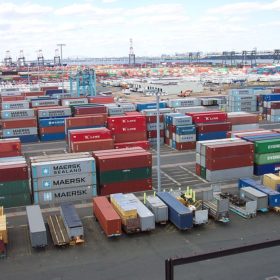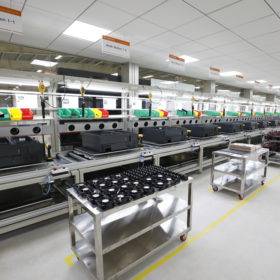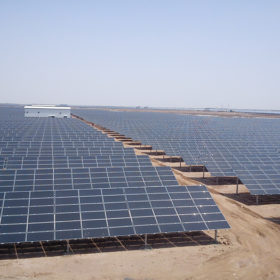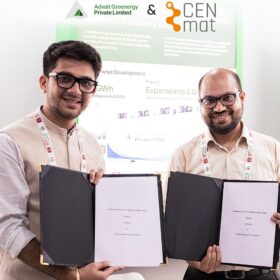India presents a $500-700 billion opportunity in renewables: IEEFA
The ambitious renewable energy target of 523 GW by 2030, coupled with conducive government policies announced recently, will pave the way for increased renewable investment in the coming decade.
Commercial solar at grid parity in China but a hard line is needed on soft costs
Deploying commercial and industrial PV in China without subsidy is already profitable in some areas, according to a new study, but prohibitive soft costs and cheap electricity are the main barriers for such installations in areas where grid parity remains out of reach.
Lithium-ion batteries still set for US tariffs on September 1
The energy storage market is set to be the latest affected by Trump’s trade war as lithium-ion batteries were excluded from the group of Chinese imports for which the U.S. president announced tariffs would be delayed until December 15.
Thinktank says India must prioritize a vertically integrated solar supply chain
To develop cost-competitive solar modules the nation must adopt a phased program and set up 15 GW of silicon-ingot-to-solar-module manufacturing capacity by 2024, according to The Energy and Resources Institute.
Corporate clean energy PPAs to smash last year’s record: BloombergNEF
Power purchase agreements for 8.6 GW of clean energy have been signed in 2019 till July—up from 7.2 GW at the same time last year—with USA alone accounting for up to 70% of the deals. India continues to lead the Asia Pacific region despite registering a slowdown in the activity.
Care Ratings revises outlook on 11 solar developers to negative
The revision in outlook reflects increased counterparty risk and weakening in the liquidity position of these generators owing to significant delays in the receipt of payments from Telangana DISCOMs.
India to hike import tariff on solar equipment: Power minister
Tariffs will be hiked down the value chain in order to encourage domestic solar manufacturing, which currently stands at just 3.2 GW for solar cells and 8.5 GW for solar modules.
3rd International Electric Vehicle Conclave to kick off tomorrow at Manesar
Jointly organised by India Energy Storage Alliance (IESA) and The International Centre for Automotive Technology (ICAT), the conclave on EV and charging infrastructure will take place on August 9, 2019 at ICAT’s Manesar Campus in Gurugram with over a hundred participating companies.
Gujarat’s solar capacity crosses 2.6 GW mark
Gujarat’s total installed solar capacity has crossed the 2.6 GW mark, according to the latest data released by the Gujarat Energy Development Agency (GEDA).
Discoms still not issuing letters of credit against power purchases – NSEFI
The National Solar Energy Federation of India has warned the Ministry of Power that PV developers may be deterred from participating in state tenders because distribution companies are still not issuing letters of credit as a payment security mechanism.

